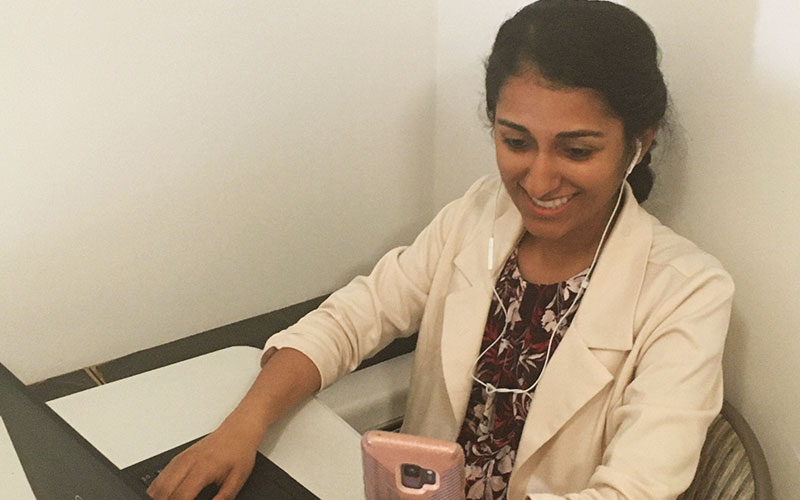Rapid Success Achieved Remotely is Cause for Celebration

Jacquline Mullakary, PharmD, a pharmacy manager on the team.
I lead a team of seven Mount Sinai Health System Ambulatory Primary Care pharmacists. We work collaboratively with primary care physicians to care for their patients. Many of these health care providers have been called upon to help with COVID-19 care in emergency departments and hospital ICUs. We are reaching out to patients to help manage their care in order to reduce the risk they will need to be seen at the Emergency Department or Urgent Care or require a PCP visit.
The value of the team’s remote interventions was recently evidenced when a patient with diabetes improved from having extremely uncontrolled to controlled blood sugar levels through phone consultation alone. Within a few short weeks, the clinical pharmacist was able to start, titrate, and provide counseling about the patient’s medications via phone. Normal blood sugar can reduce the risk for many conditions, including complications from COVID-19. Given the conditions of seclusion that make regular exercise, a healthy diet, and traditional job workflows and access to clinicians challenging for many of these patients in the community, along with higher than normal anxiety levels, we are particularly proud of this accomplishment. Way to go, team!
Ruchi Tiwari, PharmD, MS, Director of Pharmacy, Population Health, Mount Sinai Health System




